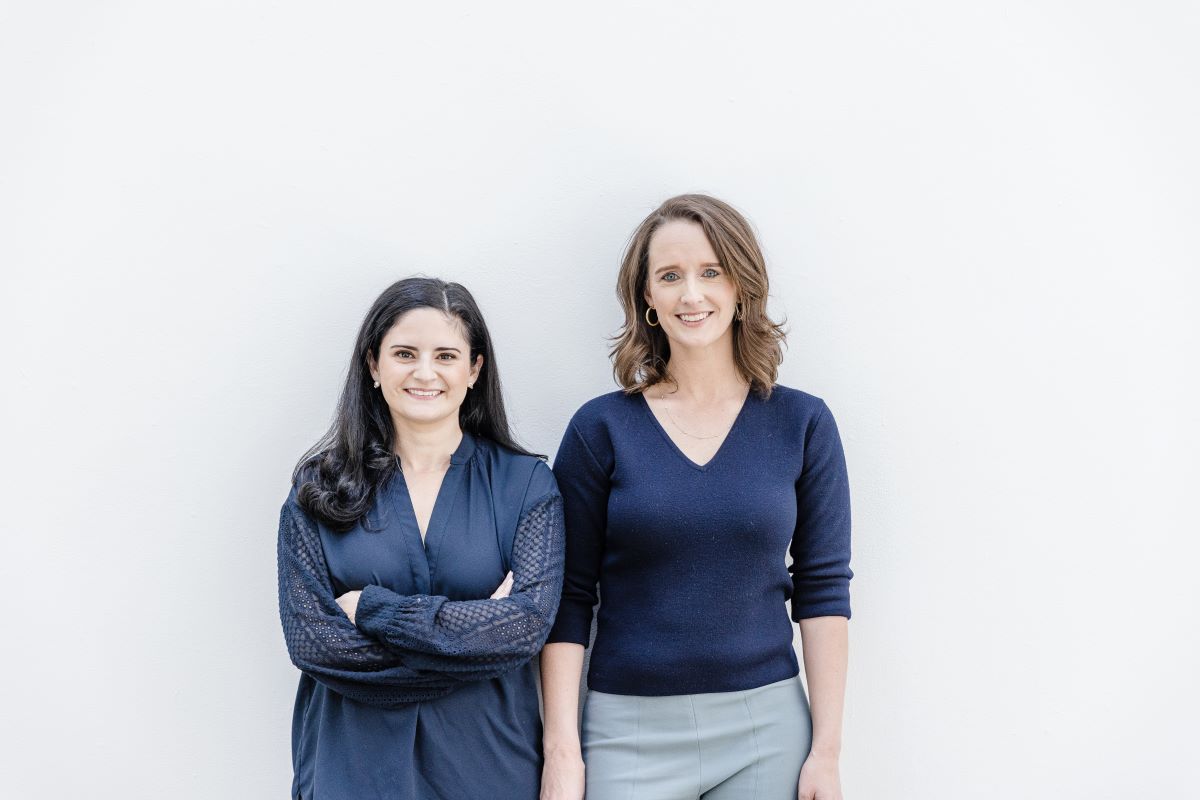Keep Company founder Adrienne Prentice’s personal and professional lives are interwoven — and unable to be separated.
Before founding her startup alongside Claudia Naim-Burt, Prentice was a lawyer at Hewlett Packard, leading a team of 35 attorneys across North and South America. But then she had her first child, Evelyn, and was suddenly at a loss on how to manage motherhood and work.
“I was a very career-driven, ambitious attorney, that’s how I identified,” Prentice told Technical.ly. “Then I had this little baby and I didn’t know what the heck to do. It was the first time that I felt not only that I was failing at home but also at work.”
At this personal and professional crossroads, she decided to become a leadership coach, with a focus on working with parents and caregivers. She went back into law, working in the HR department and talent management, and noticed that there were some “devastatingly universal” shared experiences: loneliness, people sacrificing themselves to take care of someone else — and having no idea about how to draw a boundary, ask for help or delegate.
So, in 2021, she founded Keep Company, a Bethesda, Maryland-based startup to help parents and caregivers not only know that they’re not alone, but that they’re not the problem.
“Once they have that connection, it really unlocks the ability for us to help address the behavior changes that help with taking care of themselves and then also skill-building,” Prentice said.
Keep Company is a service available to employers that gathers employees in groups to talk about shared experiences with a professional coach. Through the company’s technology, employees are placed in groups of eight that include those experiencing similar out-of-office lives and issues. Employers can choose to open these meetings up to the whole Keep Company network or keep groups internal. The startup works largely with professional service companies including law firms, consulting companies and financial services companies of 500 or more employees — though Prentice said she’s starting to explore small and mid-size companies, too.
She and Naim-Burt started the first pilot in June 2021 and officially launched the company in April 2022. Keep Company currently has four employees and over 50 coaches for the groups.
Employees start by filling out a survey to get sorted into groups, and the algorithm is largely based on organization dynamics and behavioral sciences, Prentice said. They answer questions about their roles at work and home, as well as who they’re caring for and more, before placing into groups in a “whole-person analysis.” From there, the coaches take them through a behavioral science curriculum that helps members feel more confident, in control and strategic with how to spend their time. At the same time, Keep Company partners with the employers to provide aggregate data and insights on creating a better workplace for parents and caregivers.
Of the shared experiences that bring employees together in these groups, Prentice said the top three are people looking to connect with other parents of color, parents raising children with disabilities and others caring for someone with dementia.
“Caregivers have completely lost themselves,” Prentice said. “We are so busy responding to whatever someone needs from us, either at work or at home, we don’t know what we want, what would help. So we become very reactive in almost everything.”
Keep Company, Prentice said, tries to be a third space between therapy and happy hour, where employees can bond and learn about themselves. And she’d like to see it grow.
So far, the company has raised an $800,000 pre-seed round, which included funding from TEDCO, and is currently raising a seed round. The technology was initially built by an outside firm in DC but will be continuing to develop it internally and move to an AI or machine-based learning model. Keep Company currently works with 10 clients, but she hopes to grow that to 25 or 30 by the end of the year. She’d also like to add more partnerships in professional services and eventually move into the healthcare sector.
For now, though, she said most employees are grateful for the chance to know that others are struggling while also driving change in the workplace.
“There’s also systemic change that needs to happen, so we see that as really unique,” Prentice said. “From that top-down approach, as we talk to more and more people, what we see reflected back from them is that the social well-being and the resilience-building is our biggest differentiator.”
Before you go...
Please consider supporting Technical.ly to keep our independent journalism strong. Unlike most business-focused media outlets, we don’t have a paywall. Instead, we count on your personal and organizational support.
3 ways to support our work:- Contribute to the Journalism Fund. Charitable giving ensures our information remains free and accessible for residents to discover workforce programs and entrepreneurship pathways. This includes philanthropic grants and individual tax-deductible donations from readers like you.
- Use our Preferred Partners. Our directory of vetted providers offers high-quality recommendations for services our readers need, and each referral supports our journalism.
- Use our services. If you need entrepreneurs and tech leaders to buy your services, are seeking technologists to hire or want more professionals to know about your ecosystem, Technical.ly has the biggest and most engaged audience in the mid-Atlantic. We help companies tell their stories and answer big questions to meet and serve our community.
Join our growing Slack community
Join 5,000 tech professionals and entrepreneurs in our community Slack today!

The person charged in the UnitedHealthcare CEO shooting had a ton of tech connections

From rejection to innovation: How I built a tool to beat AI hiring algorithms at their own game

Where are the country’s most vibrant tech and startup communities?




